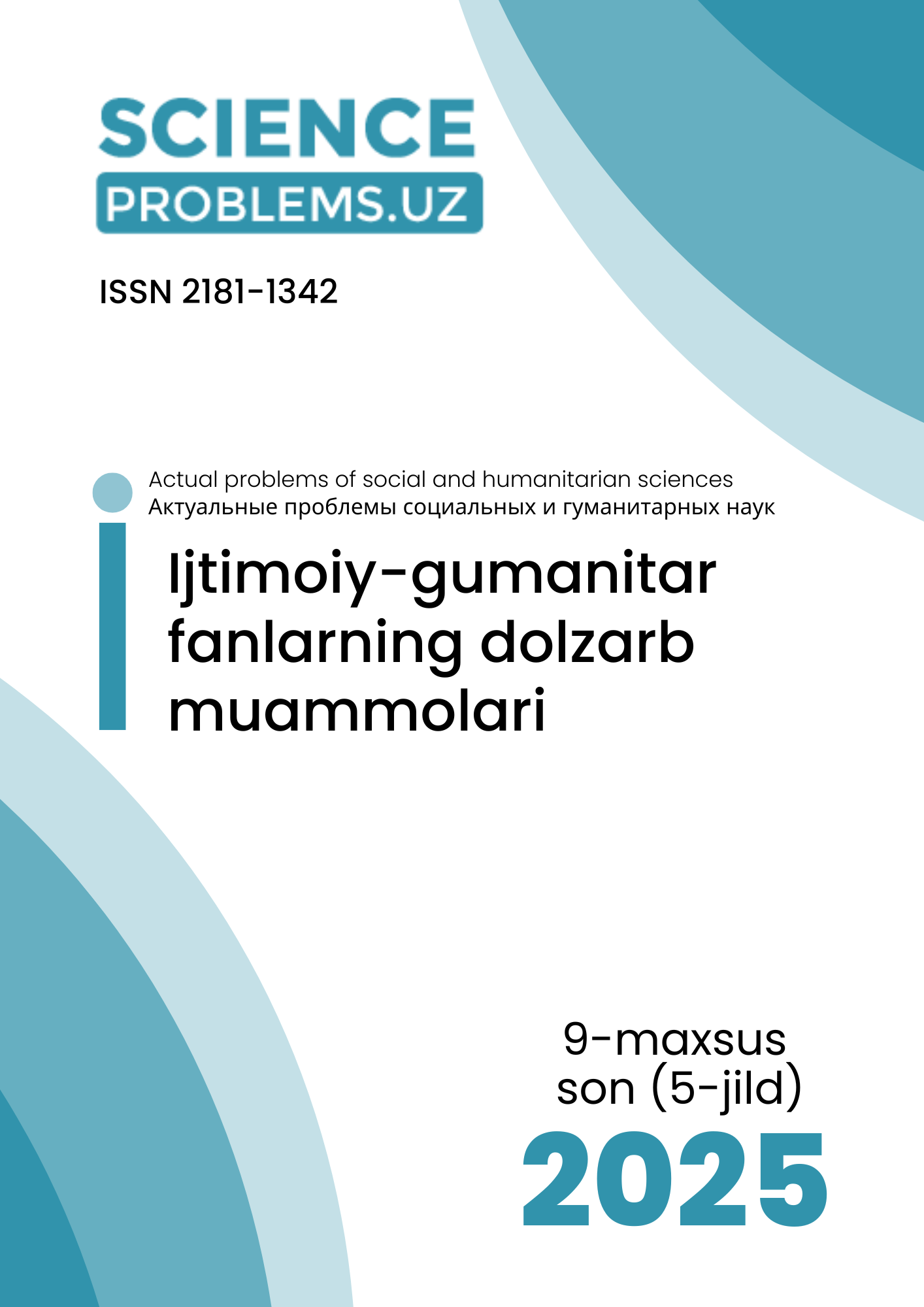СРАВНИТЕЛЬНОЕ ИССЛЕДОВАНИЕ УСТОЙЧИВЫХ СЛОВОСОЧЕТАНИЙ, ВЫРАЖАЮЩИХ ЭМОЦИОНАЛЬНЫЕ СОСТОЯНИЯ В АНГЛИЙСКОМ И УЗБЕКСКОМ ЯЗЫКАХ
DOI:
https://doi.org/10.47390/SPR1342V5SI9Y2025N65Ключевые слова:
устойчивое словосочетание, эмоциональное состояние, сопоставительное языкознание, английский, узбекский языки, семантика, прагмалингвистика, культурный концептАннотация
Статья посвящена сопоставительному анализу семантических и прагмалингвистических особенностей устойчивых словосочетаний, выражающих эмоциональные состояния, в английском и узбекском языках. Цель исследования – выявить сходства и различия между вербализацией эмоциональных концептов, структурой устойчивых словосочетаний, а также культурными и национальными особенностями в двух языковых системах. Результаты показывают, что устойчивые словосочетания в обоих языках имеют собственные метафорические модели, а культурный контекст оказывает сильное влияние на их семантическую структуру.
Библиографические ссылки
1. Wierzbicka, A. (1999). Emotions Across Languages and Cultures: Diversity and Universals. Cambridge: Cambridge University Press.
2. Mahmudov, N. va Nurmonov, A. (2001). O'zbek tili nazariy grammatikasi. Toshkent: O'qituvchi.
3. Ekman, P. (1992). An argument for basic emotions. Cognition and Emotion, 6(3-4), 169-200.
4. Firth, J. R. (1957). A synopsis of linguistic theory 1930-1955. In Studies in Linguistic Analysis (pp. 1-32). Oxford: Blackwell.
5. Hoey, M. (1998). Patterns of Lexis in Text. Oxford: Oxford University Press.
6. Stefanowitsch, A. va Gries, S. T. (2006). Corpus-Based Approaches to Metaphor and Metonymy. Berlin: Mouton de Gruyter.
7. Mahmudov, N. va Mahmudov, A. (2008). O'zbek tilining izohli lug'ati. Toshkent: O'zbekiston milliy ensiklopediyasi.
8. Kövecses, Z. (2000). Metaphor and Emotion: Language, Culture, and Body in Human Feeling. Cambridge: Cambridge University Press.
9. Apresyan, Yu. D. (1995). Izbrannye trudy: Leksicheskaya semantika. Moskva: Yazyki russkoy kultury.
10. Ivanova, E. V. (2016). Emotsionalnye kollokatsii v angliyskom i russkom yazykakh: sopostavitelnyy aspekt. Vestnik Moskovskogo universiteta, 9(2), 45-58.








